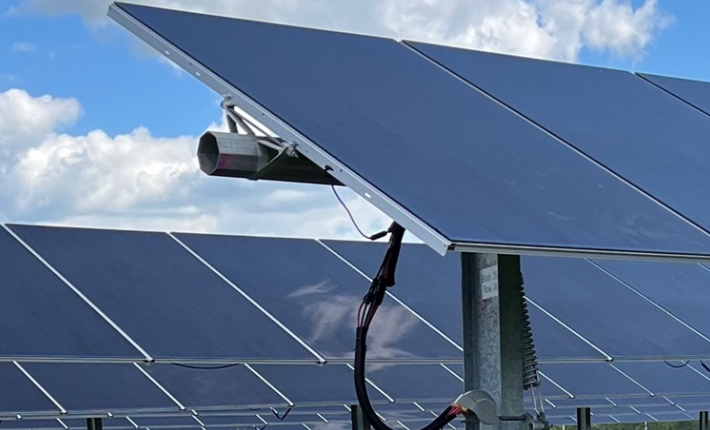|

The German solar energy market is projected to reach 115.12 gigawatts by 2025, with expectations to grow to 266.73 gigawatts by 2030, reflecting a compound annual growth rate (CAGR) of 18.3% during the forecast period. The market is poised for substantial growth, driven by the decreasing cost of solar energy infrastructure and rising electricity prices from conventional sources.
However, the increasing uptake of alternative energy sources could present challenges to the market’s expansion. Despite this, technological innovations, particularly in solar module efficiency, are expected to offer substantial growth opportunities for the German solar energy sector.
Trends in Germany's Solar Energy Market
Solar Photovoltaic (PV) Technology: Dominating the Market
Germany’s solar energy market has undergone transformative changes in recent years. As one of the pioneers in renewable energy adoption, Germany has long focused on expanding its solar capacity, driven by its ambitious energy transition plan, "Energiewende." This strategy aims to reduce carbon emissions, phase out nuclear energy, and transition toward a more sustainable energy system.
One of the key factors fueling the growth of solar energy in Germany has been the steady decline in the cost of solar technology, particularly photovoltaic (PV) panels. As the prices for solar panels have dropped, the return on investment for solar installations has improved, making them more attractive to both residential and commercial consumers. The continued decrease in the cost of solar technology has also made solar power more competitive compared to traditional energy sources.
In July 2023, Emeren Group Ltd., a global solar developer, sold an 11.5 MWp PV project to MET Group, a Swiss-based energy company, at the Ready-to-Build (RTB) stage. The solar power plant will be located in Kentzlin, in the state of Mecklenburg-Western Pomerania, with commercial operations expected to commence soon.
Recent data from the International Renewable Energy Agency’s RE Capacity 2024 report reveals that Germany’s solar PV installations grew from 67,477 MW in 2022 to 81,737 MW in 2023, an increase of 14,260 MW in just one year. This highlights the strong growth trajectory of the sector.
Additionally, in September 2023, Uniper announced its plans to develop a 300 MWp photovoltaic plant in Elsfleth, Germany, which will span approximately 281 hectares. Located near key regional energy hubs, this project aligns with the regional "Photovoltaik Wesermarsch" energy initiative and is expected to significantly contribute to sustainable energy generation.
Germany’s solar energy market also benefits from a robust international presence. The country is home to leading manufacturers and suppliers of solar technology, cementing its position as a key player in the global solar industry. The export of solar products and technology plays a significant role in driving Germany's economic growth and trade surplus.
Conclusion
Germany’s solar photovoltaic market is experiencing rapid growth, driven by a combination of favorable government policies, decreasing technology costs, a focus on sustainability, innovative financing options, and strong international competitiveness. The sector’s continued expansion is not only contributing to Germany’s energy transition but also enhancing its position as a global leader in solar energy innovation and deployment.
|
